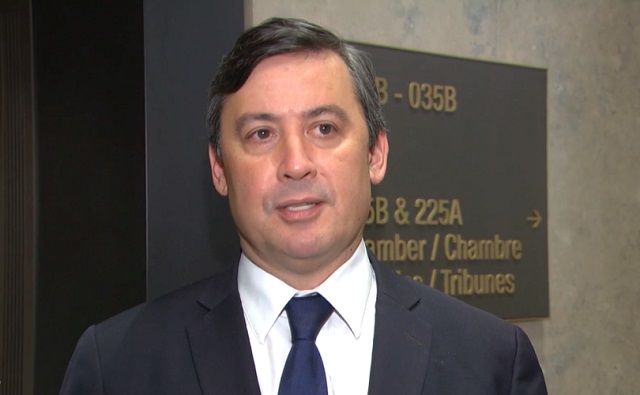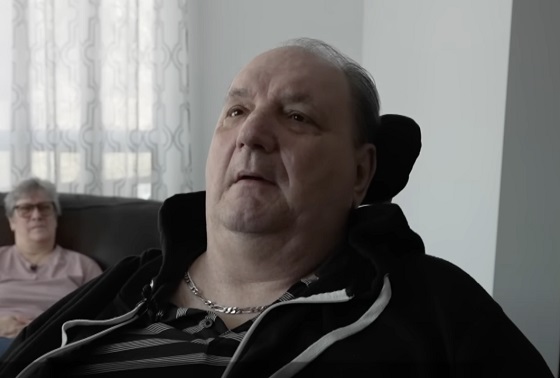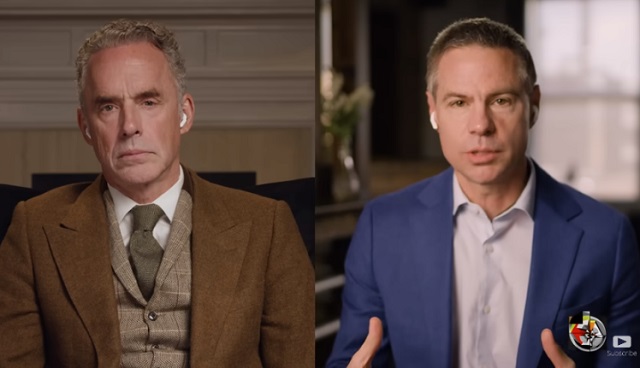COVID-19
How to interact with people in an uncertain world

I want to propose three general ground rules for interacting with people right now.

Brownstone Institute
Deborah Birx Gets Her Close-Up

From the Brownstone Institute
BY
According to Birx, she intentionally buried the more draconian elements of the lockdowns in text at the end of long documents, theorizing (correctly apparently) that most reporters or readers would just “skim” the document and would not focus on how extreme and unprecedented these mandates actually were.
Most Americans will remember Dr. Deborah Birx as the “scarf lady” who served on the White House’s Covid Response Team beginning in February 2020.
According to a recently-released (but little-seen) 24-minute mini-documentary, it was Birx – even more so than Anthony Fauci – who was responsible for government “guidelines,” almost all of which proved to be unnecessary and disastrous for the country.
According to the documentary, the guidelines ran counter to President Trump’s initial comments on Covid, but ultimately “toppled the White House (and Trump) without a shot being fired.”
The mini-documentary (“It Wasn’t Fauci: How the Deep State Really Played Trump”) was produced by Good Kid Productions. Not surprisingly, the scathing 24-minute video has received relatively few views on YouTube (only 46,500 since it was published 40 days ago on Feb. 26).
I learned of the documentary from a colleague at Brownstone Institute, who added his opinion that “Birx (is) far more culpable than Fauci in the Covid disaster…Well worth the time to see the damage an utter non-scientist, CIA-connected, bureaucrat can do to make sure things are maximally bad.”
I agree; the significant role played by Birx in the catastrophic national response to Covid has not received nearly enough attention.
Brought in from out of Nowhere…
From the video presentation, viewers learn that Birx was added to the White House’s Coronavirus Task Force as its coordinator in latter February 2020.
Birx worked closely with Task Force chairman Vice President Mike Pence, a man one suspects will not be treated well by future historians.
According to the documentary, “career bureaucrats” like Birx somehow seized control of the executive branch of government and were able to issue orders to mayors and governors which effectively “shut down the country.”
These bureaucrats were often incompetent in their prior jobs as was Birx, who’d previously served as a scientist (ha!) in the Army before leading the government’s effort to “fight AIDS in Africa” (via the PEPFAR Program).
When Birx was installed as coordinator of Covid Response she simply rehashed her own playbook for fighting AIDS in Africa, say the filmmakers.
The three tenets of this response were:
- “Treat every case of this virus as a killer.”
- “Focus on children,” who, the public was told, were being infected and hospitalized in large numbers and were a main conduit for spreading the virus.
- “Get to zero cases as soon as possible.” (The “Zero Covid” goal).
The documentary primarily uses quotes from Scott Atlas, the White House Task Force’s one skeptic, to show that all three tenets were false.
Argued Atlas: Covid was not a killer – or a genuine mortality risk – to “99.95 percent” of the population. Children had virtually zero risk of death or hospitalization from Covid. And there was no way to get to “zero cases.”
Atlas Didn’t Shrug, but was Ignored…
Furthermore, the documentary convincingly illustrates how the views of Atlas were ignored and how, at some point, his ability to speak to the press was curtailed or eliminated.
For example, when Atlas organized a meeting for President Trump with Covid-response skeptics (including the authors of the Great Barrington Declaration) this meeting was schedule to last only five minutes.
The documentary also presents a report from the inspector general of the Department of State that was highly critical of Birx’s management style with the African “AIDS relief” program she headed.
Among other claims, the report said she was “dictatorial” in her dealings with subordinates and often “issued threats” to those who disagreed with her approach.
Shockingly, this highly-critical report was published just a month before she was appointed medical coordinator of the Coronavirus Task Force.
A particularly distressing sound bite from Birx lets viewers hear her opinion on how controversial “guidance” might be implemented with little pushback.
According to Birx, she intentionally buried the more draconian elements of the lockdowns in text at the end of long documents, theorizing (correctly apparently) that most reporters or readers would just “skim” the document and would not focus on how extreme and unprecedented these mandates actually were.
The documentary points out that Birx’s prescriptions and those of President Trump were often in complete conflict.
Birx, according to the documentary, once pointed this out to Vice President Pence, who told her to keep doing what she believed.
Indeed, the Vice President gave Birx full use of Air Force 2 so she could more easily travel across the country, spreading her lockdown message to governors, mayors, and other influencers.
Several Covid skeptic writers, including Jeffrey Tucker of Brownstone Institute, have noted that President Trump himself went from an opponent of draconian lockdowns to an avid supporter of these responses in a period of just one or two days (the pivotal change happened on or around March 10th, 2020, according to Tucker).
Whoever or whatever caused this change in position, it does not seem to be a coincidence that this about-face happened shortly after Birx – a former military officer – was named to an important position on the Task Force.
(Personally, I don’t give Anthony Fauci a pass as I’ve always figured he’s a “dark master” at manipulating members of the science/medical/government complex to achieve his own desired results.)
This documentary highlights the crucial role played by Deborah Birx and, more generally, how unknown bureaucrats can make decisions that turn the world upside-down.
That is, most Americans probably think presidents are in charge, but, often, they’re really not. These real rulers of society, one suspects, would include members of the so-called Deep State, who have no doubt installed sycophants like Fauci and Birx in positions of power.
I definitely recommend this 24-minute video.
A Sample of Reader Comments…
I also enjoyed the Reader Comments that followed this video. The first comment is from my Brownstone colleague who brought this documentary to my attention:
“… As I said, things can change over the period of 20 years but in the case of Birx/Fauci, I do not believe so. I have never seen people entrenched in the bureaucracy change.”
Other comments from the people who have viewed the mini-documentary on YouTube:
“Pence needs to be held accountable.”
“What does Debbie’s bank account look like?”
“(The) final assessment of President Trump at the 23:30 mark is, while painful, accurate. He got rolled.”
“This is very hard to find on YouTube. You can literally search the title and it doesn’t come up.”
“Excellent summary, hope this goes viral. Lots of lessons to learn for future generations.”
“Eye opening. Great reporting.”
Post from One Month Ago…
“37 likes after 3 years of the most controversial and divisive action in recent history. How can this be?”
“Oh never mind. YouTube hid it from the public for years.”
“Probably hasn’t been taken down yet for that reason, relatively low views.”
“Thanks for this! Sounds like everyone below President Trump was on a power trip and I didn’t think it was possible to despise Pence more than I already do.”
“…the backing of CDC, legacy media, WHO and government schools, business folding in fear are ALL responsible. Accountability for every person and agency is paramount!”
“Should be noted that her work on AIDS in Africa was just as useless and damaging.”
“First, any mature, adult woman who speaks with that much vocal fry should be immediately suspect. And the glee with which she recounts her role at undermining POTUS is remarkable and repulsive. This woman should NEVER be allowed to operate the levers of power again.”
Republished from the author’s Substack
COVID-19
Japanese study shows disturbing increase in cancer related deaths during the Covid pandemic

From Cureus.com
The study is called:
Increased Age-Adjusted Cancer Mortality After the Third mRNA-Lipid Nanoparticle Vaccine Dose During the COVID-19 Pandemic in Japan
During the COVID-19 pandemic, excess deaths including cancer have become a concern in Japan, which has a rapidly aging population. Thus, this study aimed to evaluate how age-adjusted mortality rates (AMRs) for different types of cancer in Japan changed during the COVID-19 pandemic (2020-2022).
Introduction
The COVID-19 pandemic began in December 2019 in Wuhan, China, and was first detected in Japan in January 2020. In response, a range of healthcare and socio-economic restrictions were implemented to curb the spread of the disease. Since February 2021, the mRNA-lipid nanoparticle (mRNA-LNP) vaccine has been available for emergency use and is recommended for all individuals aged six months and older, especially those at high risk.
As of March 2023, 80% of the Japanese population had received their first and second doses, 68% had received their third dose, and 45% had received their fourth dose [1]. Despite these national measures, 33.8 million people had been infected, and 74,500 deaths had been attributed to COVID-19 in Japan by the end of April 2023.
Additionally, excess deaths from causes other than COVID-19 have been reported in various countries [2-6], including deaths from cancer [7-10], and Japan is no exception [11,12]. Cancer is the leading cause of death in Japan, accounting for one-fourth of all deaths. Therefore, it is essential to understand the effects of the pandemic on mortality rates of cancer from 2020 to 2022. Age adjustment is necessary for accurate evaluation, especially in diseases such as cancer that tend to occur in elderly adults.
Japan has several characteristics that make it ideal for analyzing the impact of the pandemic on cancer mortality rates, including its large population of 123 million, availability of official statistics, and the high 80% accuracy rate of death certificates according to autopsy studies [13].
Conclusions
Statistically significant increases in age-adjusted mortality rates of all cancer and some specific types of cancer, namely, ovarian cancer, leukemia, prostate, lip/oral/pharyngeal, pancreatic, and breast cancers, were observed in 2022 after two-thirds of the Japanese population had received the third or later dose of SARS-CoV-2 mRNA-LNP vaccine. These particularly marked increases in mortality rates of these ERα-sensitive cancers may be attributable to several mechanisms of the mRNA-LNP vaccination rather than COVID-19 infection itself or reduced cancer care due to the lockdown. The significance of this possibility warrants further studies.
From the YouTube channel of Dr John Campbell
-

 espionage24 hours ago
espionage24 hours agoConservative MP testifies that foreign agents could effectively elect Canada’s prime minister, premiers
-

 Alberta1 day ago
Alberta1 day agoBuilding a 21st century transit system for Calgary
-

 Health17 hours ago
Health17 hours ago‘Shocking cover-up’: DOJ lawyers committed fraud in vaccine injury case, CHD attorney alleges in motion
-

 Health24 hours ago
Health24 hours agoQuadriplegic man dies via euthanasia after developing bed sores waiting at Quebec hospital
-

 Health1 day ago
Health1 day agoSetback for the Transgender movement: Michael Shellenberger on leaked files revealing medical malpractice on children and vulnerable adults
-

 Education1 day ago
Education1 day agoSolar eclipse school closures underscore impact of learning loss
-

 Health1 day ago
Health1 day agoTime for an intervention – an urgent call to end “gender-affirming” treatments for children
-

 Automotive8 hours ago
Automotive8 hours agoBiden’s Kill Switch: The Growing Threat of Government Control of Your Car







